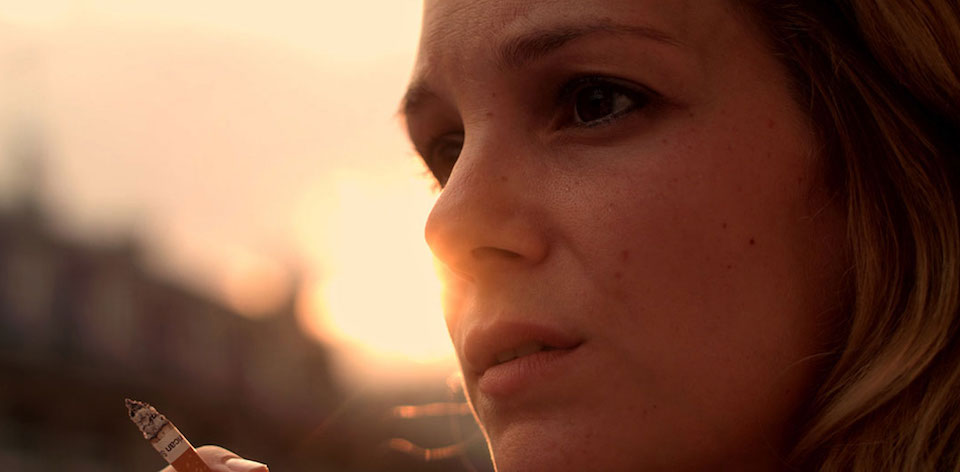Australian-born writer/director/producer Josephine Mackerras’ debut film ALICE had been gestating for a while. Six years, in fact. Yet the reason for the long gestation, a process interrupted by the birth of her son, proved to be the turning point for a narrative that has a understated impact.
Alice (Emilie Piponnier) is an exhausted working mother, yet her husband Francois (Martin Swabey) and son Jules seem like a perfect family unit to their friends and family. At least until Alice discovers that Francois has disappeared with their entire life savings and she is in danger of losing her home. Looking for clues, she is drawn into the world of Elegant Escorts.
ALICE is a rare positive exploration of sex workers that neither glamorises nor condemns. Alice chooses to become an escort, not simply for the money but because she finds a version of herself that she likes. Indeed, there’s a moment when Alice is confronted with what she has been doing to earn money, and she simply replies “I don’t feel degraded.”

The positive representation extends to the role of Lisa (Chloé Boreham), a fellow escort. As Alice explores a liberated side of herself – in a bold series of turns from Piponnier – Lisa acts as an inspiration, a friend, and a constant companion. Neither judging nor undermining Alice’s choices, she’s a stark contrast with the toxic masculinity that surrounds her. Alice smashes the patriarchy simply by defying societal expectations. (At least one older male audience member took issue with this during the Q&A at my screening, kind of proving Mackerras’ point in the process).
There’s a few tonal issues with this, especially as Alice and Lisa go on a ‘fun in Paris’ montage to cement their friendship. Initial sexual encounters are played for laughs, and this undercuts at least some of the sex positivity. Yet Mackerras still manages to subvert our assumptions on the genre. As one older client seemingly undoes some of the reversal of power that Alice has attained, we hold our breath and wait for the worst to happen. When it doesn’t, there’s a surprising turn that is both tender and slightly unnerving.
Mackerras and cinematographer Mickael Delahaie play on the exchange of power in a number of their shots. Often flipping the basic 180-degree rule on the spatial relationship between characters. When Alice makes an extended speech during the film’s climax, for example, the camera stays entire on her rather than acknowledging much of François’ presence.
Mackerras has poured so much of herself and her time into this film, it’s clear that there’s a lot of tender loving care for her subjects. During a talk following the festival screening, she indicated that Hollywood has already come knocking thanks to her much-deserved SXSW Grand Jury Prize. Here’s hoping that her next project won’t have quite as long a gestation period.
2019 | Australia, France| DIR: Josephine Mackerras | WRITER: Josephine Mackerras | CAST: Chloe Boreham, Emilie Piponnier, Martin Swabey | DISTRIBUTOR: Visit Films (World Sales), Melbourne International Film Festival (AUS) | RUNNING TIME: 103 minutes | RELEASE DATE: 1 – 18 August 2019 (AUS)






